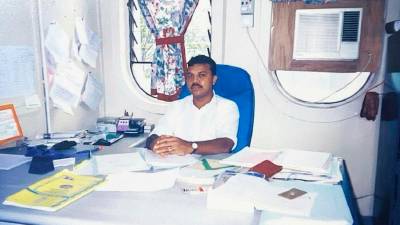LONG before the world watched in horror as planes slammed into New York’s Twin Towers on Sept 11, 2001 (9/11), a handful of Malaysian plainclothes officers were already losing sleep in dingy budget hotels, airport lounges and cyber cafes – shadowing men whose names would later be etched into global infamy.
Deputy Inspector-General of Police Tan Sri Ayob Khan Mydin Pitchay (pic) revealed that the Special Branch (SB) had Al-Qaeda operatives in its crosshairs as early as December 1999, nearly two years before 9/11.
It all began with a single US intelligence tip-off. From that moment, the counter-terrorism unit launched a surveillance operation so meticulous it was later immortalised in the 9/11 Commission Report and cited in books such as The Looming Tower and The Black Banners.
But for the officers on the ground, it was long, tense hours of watching and waiting.
“At the time, the Special Branch was led by one of its most respected directors, Datuk Yusof Rahaman.
“I was fortunate to serve under his leadership since I joined SB in 1993,” Ayob wrote on Facebook, crediting Yusof and his colleagues for the success of the operation.
On Jan 4, 2000, Ayob and his team conducted a stakeout at the KL International Airport (KLIA).
At the baggage carousel, an inspector known as Mohd Raby quietly identified a man in a black long-sleeved shirt as Khalid Al-Mihdhar, who together with four others would later hijack American Airlines Flight 77 and crash it into the Pentagon in Arlington, USA.
Al-Mihdhar and his companion slipped past, checking into a Bukit Bintang budget hotel.
For most Malaysians, it was just another weekday. For SB officers, it was the beginning of a surveillance marathon – public payphones near Menara Maybank, smoke-filled internet cafes, late-night stakeouts during which every phone call mattered.
Every scrap of intel – flight details, passports, call records – was passed to the Americans.
However, not all of it made its way to the FBI.
The suspects eventually flew to Bangkok, but the Malaysian trail did not go cold. Links to local networks, including ex-army captain Yazid Sufaat and Jemaah Islamiyah (JI), kept the SB officers busy.
By Dec 11, 2001, their patience paid off – a sweeping operation smashed JI networks across Malaysia and the wider region, from Singapore to Indonesia, the Philippines, Thailand and even Australia. It was Southeast Asia’s first coordinated counter-terrorism takedown – and Malaysia was at its centre.
Ayob stressed that none of it was a one-man show.
“The success of the Special Branch in uncovering Al-Qaeda and JI networks was not solely the achievement of the Counter Terrorism Division but the result of cooperation across all SB divisions, many working quietly behind the scenes,” he said.
The revelation raises an unsettling question: What if Malaysian officers had not recognised Al-Mihdhar at KLIA? What if JI’s networks had been left unchecked?
The answer is chilling. Southeast Asia could well have been another frontline for Al-Qaeda’s terror campaigns. Malaysia itself – with its busy airports, crowded cities and porous borders – might have faced attacks.
But thankfully, they never came to pass.
Instead, the country dodged that bullet, thanks to officers whose names will never make the front pages, and whose work is often buried in the footnotes of international reports.
More than two decades later, their story is a reminder that security does not always feature flashing lights and sirens or grand press conferences. Sometimes, it looks like a weary officer nursing kopi at a mamak stall, eyes trained on a payphone across the street, waiting for a call that could change the course of history.
